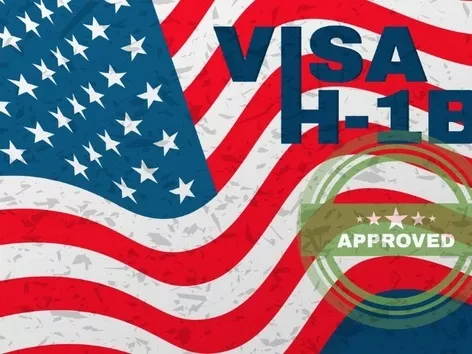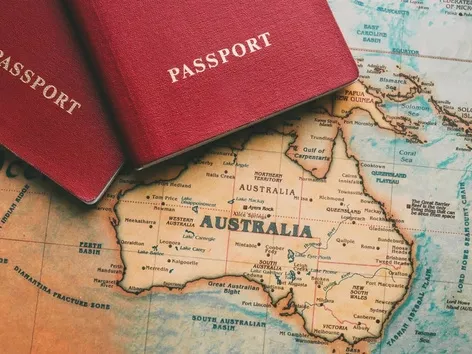How to work in the USA without a job offer:visa options available in 2025
Table of contents
- B-1/B-2 Business or Tourist Visa (for Short-Term Work)
- E-2 Investor Visa (for entrepreneurs and investors)
- EB-2 National Interest Waiver (NIW)
- O-1 Visa (For Individuals with Extraordinary Ability)
- L-1 Visa (Intra-Corporate Transferee)
- Student Visas (F-1 and J-1) with Optional Practical Training (OPT) or Curricular Practical Training (CPT)
- TN Visa (for Canadian and Mexican citizens)

To obtain a work visa to the USA, a foreigner must have a job offer, but there are exceptions when it is possible to obtain the right to move without first finding an employer. Find out which visa categories give an expat the right to enter without an invitation
For many people around the world, including citizens of Norway, Belgium, the Netherlands, and the Bahamas, the United States remains the top destination for work and career advancement. However, securing a job offer here before applying for a visa can be difficult.
Fortunately, there are several visa options that allow individuals to work in the United States without a specific job offer. In this article, we will look at the best visa options for 2025, providing a complete guide on how to work in the United States without a job offer.
To safely move and find work in a new country, you will need health insurance. Apply for an extended policy on the Visit World portal.
B-1/B-2 Business or Tourist Visa (for Short-Term Work)
The B-1/B-2 visa is primarily intended for short-term visitors to the United States for business or tourism purposes. While it does not allow for employment in the traditional sense, it can be a useful option for individuals attending business meetings, conferences, or exploring business opportunities.
- How does it work?
The B-1/B-2 visa allows individuals to enter the United States temporarily. While you cannot work full-time on this visa, you can research business ventures, enter into contracts, or participate in business.
- Restrictions
It is important to understand that the B-1/B-2 visa does not allow you to work directly for an employer in the United States or earn income while in the country. Violating these conditions may result in deportation and denial of future visas.
E-2 Investor Visa (for entrepreneurs and investors)
If you are an entrepreneur or investor, the E-2 Treaty Investor Visa may be a great option. This visa allows citizens of certain countries to enter the United States to operate a business in which they have invested significant capital.
- How does it work?
To qualify for an E-2 visa, you must make a significant investment in a U.S. business (usually around $100,000 or more) and show that you will be actively involved in running the business. You do not need a traditional job offer, but you do need to show that the business will generate income and create jobs for U.S. workers.
- Limitations
The E-2 visa is valid for up to two years, but can be renewed indefinitely as long as the business continues to operate. However, this visa is only available to citizens of countries that have an agreement with the U.S., and not all countries are eligible for this option.
EB-2 National Interest Waiver (NIW)
The EB-2 National Interest Waiver is an employment-based visa that provides a direct path to permanent residency (a green card) without a job offer. It is designed for individuals whose work significantly benefits the national interests of the United States.
- How does it work?
Applicants must demonstrate either exceptional ability or hold a research degree (Master’s or PhD). The following professionals often qualify:
1. STEM Experts – Scientists, engineers, and technology professionals who advance important innovations.
2. Researchers and Scientists – Those who make significant contributions to science, education, or health care.
3. Business and Arts Professionals – Individuals who demonstrate exceptional ability in the areas of entrepreneurship, economic development, or creativity.
Unlike the H-1B visa, which requires employer sponsorship, the EB-2 National Interest Waiver allows individuals to petition independently, making it an attractive option for qualified professionals seeking independent opportunities in the United States.
- Restrictions
Only foreigners with the appropriate job title and qualifications can be granted a visa.
O-1 Visa (For Individuals with Extraordinary Ability)
The O-1 visa is for individuals who demonstrate extraordinary ability or achievement in fields such as science, the arts, education, business, or athletics. If you are a recognized expert or leader in your field, the O-1 visa may be a viable option, even if you do not have a job offer.
- How does it work?
The O-1 visa requires evidence of your extraordinary ability or achievement through documentation such as awards, published work, or media coverage. This visa allows you to work for a specific employer, but you can apply with the general intention of working in your field.
- Limitations
While the O-1 visa is quite flexible, it does require a lot of documentation to prove your extraordinary ability. Additionally, the visa is typically issued for three years and can be renewed indefinitely as long as the individual continues to work in their field of expertise.
L-1 Visa (Intra-Corporate Transferee)
The L-1 visa is for employees of international companies who are transferring to a U.S. branch. While this visa technically requires employment, it can be a viable option for individuals who work for multinational companies that operate in the U.S. and abroad.
- How does it work?
If you are already employed by a foreign company that has a U.S. branch, you can apply for an L-1 visa as an intra-corporate transferee. The L-1 visa allows you to move to the U.S. to work for the same employer. Importantly, you do not need a separate job offer from a U.S. employer if you are already employed by a multinational company.
- Restrictions
To be eligible for an L-1 visa, you must have worked for the company for at least one year in the past three years. The visa is temporary, but can be renewed, and is usually granted for one to three years.
Student Visas (F-1 and J-1) with Optional Practical Training (OPT) or Curricular Practical Training (CPT)
While not a direct path to work in the U.S. without a job offer, individuals with F-1 (student) or J-1 (exchange visitor) visas can take advantage of Optional Practical Training (OPT) or Curricular Practical Training (CPT) to gain work experience.
- How does it work?
The F-1 visa allows international students to study in the U.S. While you are studying, you can apply for OPT or CPT to work in the U.S. in a position related to your field of study. This gives you the chance to gain work experience and potentially transition into a full-time job.
- Limitations
OPT is typically available for 12 months (or 24 months for STEM graduates), while CPT is limited to work that is part of your program of study. You must also maintain an F-1 or J-1 visa, and there are restrictions on the type of work you can do.
TN Visa (for Canadian and Mexican citizens)
The TN visa is part of the North American Free Trade Agreement (NAFTA) and allows Canadian and Mexican citizens to work in the United States in certain occupations. The TN visa does not require a traditional job offer if the person is qualified for a specific occupation listed in NAFTA.
- How does it work?
The TN visa allows qualified professionals from Canada and Mexico to work in the United States in fields such as engineering, accounting, and medicine. The application process is relatively quick and easy, especially for Canadian citizens who do not need a visa stamp.
- Restrictions
The TN visa is renewable, but it is temporary, usually valid for up to three years. It also limits individuals to certain occupations outlined in the NAFTA agreement.
Navigating the U.S. immigration system can be difficult, especially if you’re trying to work without a job offer. However, there are several viable visa options that allow individuals to come to the U.S. for business, entrepreneurial, or specialized employment opportunities in 2025.
Before applying for any visa, it’s important to carefully consider your qualifications, your goals, and the specific requirements for each visa category. Consulting with an immigration attorney can also help streamline the process and ensure you choose the right path for your situation.
Book a consultation with an immigration lawyer to learn the current rules for moving and working in the U.S. in 2025.
Reminder! Getting a Green Card in the U.S. can be quite difficult, especially for applicants from high-demand countries. We’ve already talked about which ways to obtain a residence permit in the U.S. will be the best in 2025.
Products from Visit World for a comfortable trip:
Checklist for obtaining a visa and necessary documents in the USA;
Legal advice on immigration to the USA;
Travel insurance for foreigners in the USA;
Medical insurance all over the world.
We monitor the accuracy and relevance of our information, so if you notice any errors or inconsistencies, please contact our hotline.
Recommended articles
1 min
Employment
The U.S. Citizenship and Immigration Services (USCIS) has announced the dates for the H-1B visa registration for fiscal year 2026. Find out when and how to apply and what changes await foreign workers in the United States very soon
17 lut. 2025
More details2 min
Work
Hong Kong attracts talent from around the world through the Talent Visa program, which allows skilled professionals to work and live in the city, contributing to economic growth and innovation. Find out how to get a Talent Visa to work in Hong Kong in 2025, who can apply, what the requirements are for candidates and how the application process works.
16 mar. 2025
More details2 min
Work
Immigration to Australia 2025: the most popular Australian visas and their conditions
Australia is actively attracting skilled professionals, entrepreneurs and young travelers by offering a wide range of visas. Find out which visas are available in Australia in 2025, who can get them and the allowed period of stay under the permit
17 mar. 2025
More details1 min
Work
Singapore is preparing for significant changes to its work visa and S Pass policies to support workforce stability and address the skills shortage. Find out what changes expats in Singapore can expect in 2025
18 mar. 2025
More detailsAll materials and articles are owned by VisitWorld.Today and are protected by international intellectual property regulations. When using materials, approval from VisitWorld.Today is required.
